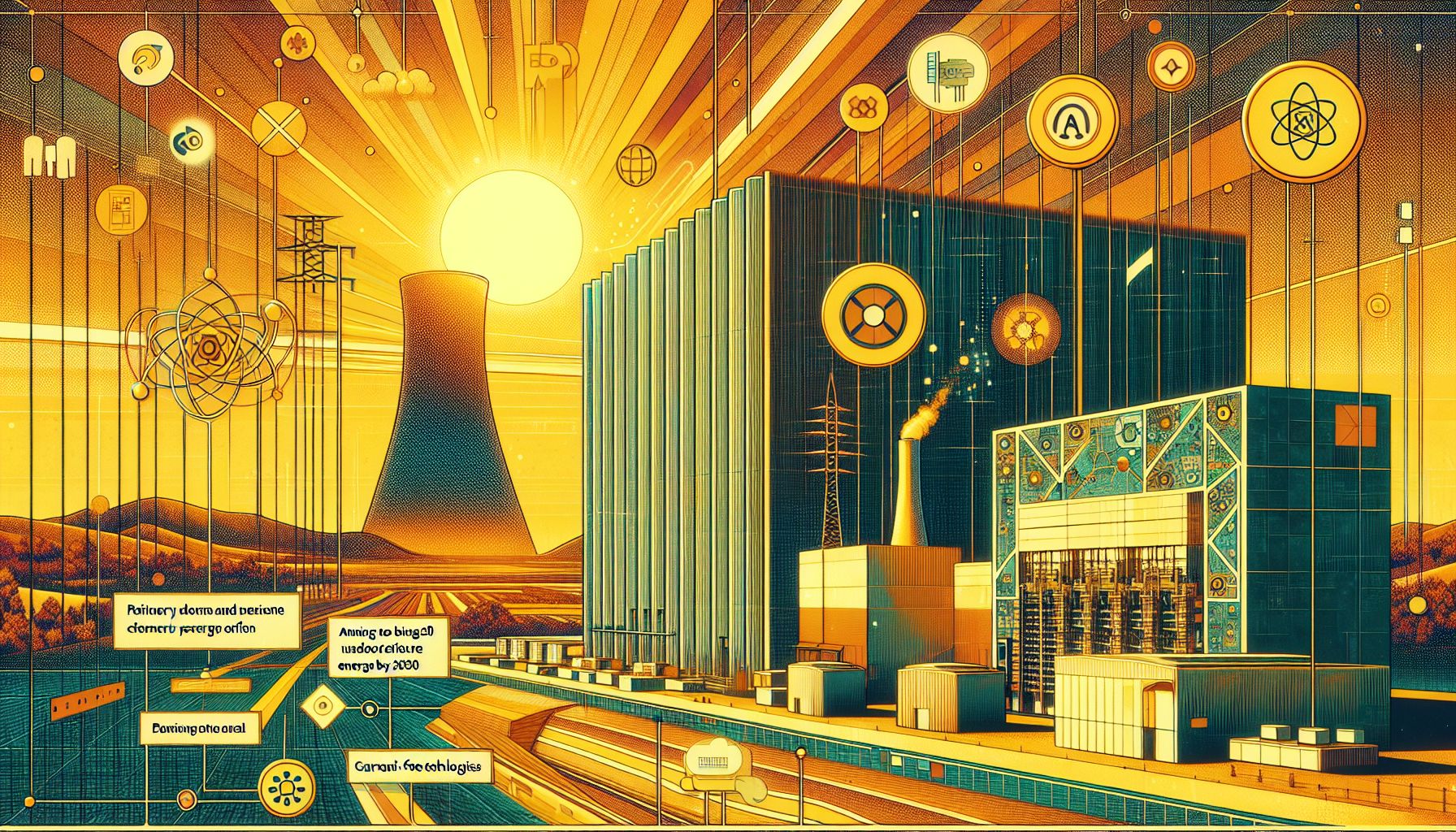Google Bets on Nuclear Power to Fuel AI's Energy Appetite

Mountain View, Thursday, 17 October 2024.
Google partners with Kairos Power to develop small modular reactors, aiming to bring 500 MW of carbon-free energy online by 2030. This strategic move addresses the surging power demands of AI technologies while aligning with Google’s sustainability goals.
The Rising Energy Demands of AI
Artificial intelligence (AI) technologies are rapidly advancing, leading to significant increases in energy consumption across the globe. With over 19,000 AI tools already in use, ranging from architectural support systems to consumer video editing applications, the demand for electricity has surged exponentially. Google’s own AI offerings, such as NotebookLM, exemplify this trend by requiring substantial computational power to perform complex tasks efficiently. As the AI landscape continues to expand, the need for sustainable and reliable energy sources becomes increasingly critical[1].
Google’s Nuclear Energy Commitment
In response to these energy challenges, Google has taken a pioneering step by partnering with Kairos Power, a California-based company specializing in advanced nuclear technology. This collaboration marks the world’s first corporate agreement to purchase nuclear energy from small modular reactors (SMRs), which are anticipated to provide up to 500 megawatts (MW) of 24/7 carbon-free power by 2030. Google’s investment in nuclear energy is part of a broader strategy to achieve net-zero emissions by 2030, complementing its existing renewable energy initiatives such as solar and wind power. By integrating nuclear power into its energy portfolio, Google aims to ensure a consistent and sustainable power supply for its AI-driven operations[2][3].
Understanding Small Modular Reactors
The small modular reactors developed by Kairos Power are designed to be more cost-effective and flexible compared to traditional large-scale nuclear plants. Utilizing a molten-salt cooling system and ceramic, pebble-type fuel, these reactors operate at low pressure, enhancing safety and reducing construction timelines. This innovative technology not only promises to meet Google’s growing energy needs but also aligns with national efforts to decarbonize electricity grids. Furthermore, the U.S. Department of Energy has recognized nuclear power as having the highest economic impact among power generation sources, highlighting the potential for job creation and economic growth through such investments[2][4].
Implications for the Tech Industry
Google’s venture into nuclear energy reflects a broader trend among major technology companies, including Amazon and Microsoft, who are also investing heavily in nuclear power to support their burgeoning AI capabilities. These companies recognize the urgent need for reliable, emissions-free power sources as they strive to meet sustainability commitments and mitigate the environmental impact of increased energy consumption. By leading the charge in adopting advanced nuclear technologies, Google not only sets a precedent for the industry but also strengthens its position as a leader in sustainable innovation, potentially inspiring others to follow suit[3][5].
A Future Powered by Clean Energy
As the first small modular reactors are expected to come online by 2030, this initiative represents a significant milestone in the transition towards a cleaner, more sustainable energy future. Google’s strategic partnership with Kairos Power underscores the importance of innovative solutions in addressing the complex challenges posed by AI-driven energy demands. By investing in cutting-edge nuclear technology, Google is poised to not only meet its own energy needs but also contribute to the broader goal of global decarbonization, paving the way for a more sustainable digital ecosystem[2][4].

